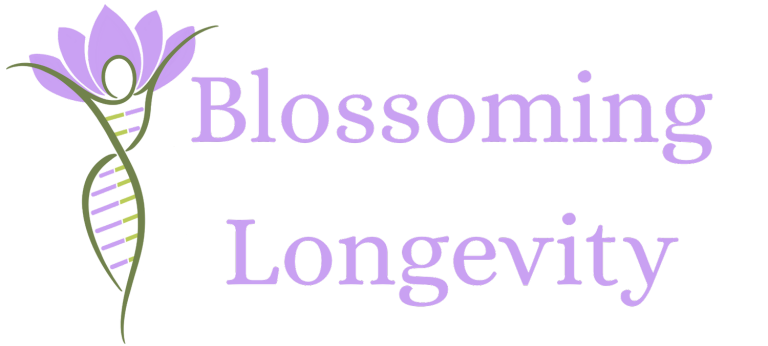Article Insights & Reflections
Synopsis: This article connects gut health to hormone balance, inflammation, and symptom intensity during menopause. It shares evidence-informed nutrition and lifestyle strategies to repair the gut and stabilize hormones.
Top 5 Questions Answered:
- How does the gut microbiome influence hormone balance?
- Can improving digestion reduce hot flashes or mood swings?
- Which foods and fibers support a healthier gut?
- What is the role of probiotics or fermented foods?
- How long before gut-focused changes affect symptoms?
The Hidden Hormonal Regulator in Your Gut
Most are surprised to learn that hormone balance begins in the gut. Within your microbiome exists a specialized community of bacteria called the estrobolome, which contains special genes that help metabolize estrogen. This bacterial ecosystem plays a crucial role in regulating hormone levels during menopause. When the estrobolome is balanced, it helps maintain appropriate estrogen levels in the bloodstream. When it’s disrupted, people often experience more severe menopause symptoms. This connection explains why digestive issues frequently coincide with hormonal fluctuations. It’s not coincidence but biology. Recent research confirms that menopause alters both the gut microbiome and estrobolome, with implications for cardiometabolic health as ovarian hormones decline. This disruption creates a cascade effect throughout the body.Nutritional Wisdom for Hormonal Balance
The foods we eat directly influence our hormonal landscape. Certain dietary patterns support the body’s natural balance during menopause. Plant-based phytoestrogens offer gentle hormonal support. Those in Asian countries with high soy intake experience hot flashes at dramatically lower rates (10-25%) than those in Western countries (60-90%). While scientists continue investigating whether this difference stems from diet, genetics, or both, the pattern is compelling. Cruciferous vegetables like broccoli, cauliflower, and kale contain compounds that support healthy estrogen metabolism. They work by promoting beneficial estrobolome function. Omega-3 fatty acids from sources like fatty fish, walnuts, and flaxseeds help reduce inflammation that can exacerbate menopause symptoms. They also support brain health during a time when cognitive changes concern many people. Fiber-rich foods nourish beneficial gut bacteria, supporting the estrobolome and hormone metabolism. Aim for 25-30 grams daily from diverse plant sources. Fermented foods introduce beneficial bacteria directly into the gut ecosystem. Yogurt, kefir, kimchi, and sauerkraut can all contribute to a healthier microbiome.Mind-Body Practices: The Missing Piece
The connection between stress and hormonal symptoms represents one of the most overlooked aspects of menopause wellness. Chronic stress disrupts the delicate balance of cortisol, estrogen, and progesterone. This disruption can intensify hot flashes, sleep disturbances, and mood fluctuations. Mindfulness practices offer powerful relief. A study of 1,744 people aged 40 to 65 found that those with higher mindfulness scores experienced fewer menopausal symptoms, particularly when under stress. Even five minutes of daily mindfulness meditation can significantly reduce stress levels within a week, creating an accessible tool for managing symptoms. Movement practices like yoga and tai chi show particular promise. Multiple studies report improvements in overall menopause symptoms, mood, sleep quality, and musculoskeletal pain with regular practice. These practices work not just through stress reduction but by directly influencing hormonal pathways and nervous system regulation.Creating Your Integrative Menopause Plan
An effective approach to menopause wellness addresses multiple systems simultaneously. Consider these foundational elements: Gut support: Prioritize prebiotic and probiotic foods to nurture your estrobolome. Consider targeted supplementation if digestive symptoms persist. Anti-inflammatory nutrition: Emphasize colorful vegetables, healthy fats, and adequate protein while minimizing processed foods, excess sugar, and alcohol. Stress management: Incorporate daily practices that activate your parasympathetic nervous system, whether through meditation, deep breathing, or gentle movement. Sleep optimization: Create consistent sleep routines that support your changing hormonal patterns. Address night sweats through temperature regulation and moisture-wicking bedding. Community connection: Share experiences with others navigating similar transitions. Social support significantly impacts how women experience menopause.Beyond Symptom Management
The integrative approach shifts our perspective from merely managing symptoms to creating lasting vitality. When we support the body’s innate balancing mechanisms through nutrition, gut health, and mind-body practices, we often find that symptoms naturally diminish as overall health improves. This approach acknowledges menopause as a natural transition rather than a medical condition. It honors the wisdom of the body while providing meaningful support during change. The goal isn’t to “fix” menopause but to flourish through it, emerging with greater health and vitality on the other side.The Wisdom of Integration
Menopause represents a profound transition that deserves comprehensive support. By addressing the interconnected systems of gut health, nutrition, and mind-body wellness, we create the conditions for genuine vitality. This integrative approach doesn’t reject conventional treatments when needed but expands our options beyond symptom suppression alone. We believe every person deserves to navigate menopause with knowledge, support, and effective tools for wellbeing. The journey through hormonal transition can become not just manageable but transformative. When we honor the complexity of human bodies and provide multi-dimensional support, menopause becomes an opportunity for renewed vitality rather than a season merely to endure.Dr. Heidi Codino
At Blossoming Longevity, we empower women to rediscover their confidence, energy, and vitality through tailored solutions for weight optimization, skin health, and hormonal balance.
Our holistic approach addresses the unique challenges women face, helping you feel vibrant and confident while optimizing your health for the future.
With personal guidance and support, we’re here to help you embrace the life you’ve always dreamed of, unlocking your potential for lasting wellness and happiness.
Together, let’s nurture your body and soul, a brighter, healthier tomorrow is just one step away!







